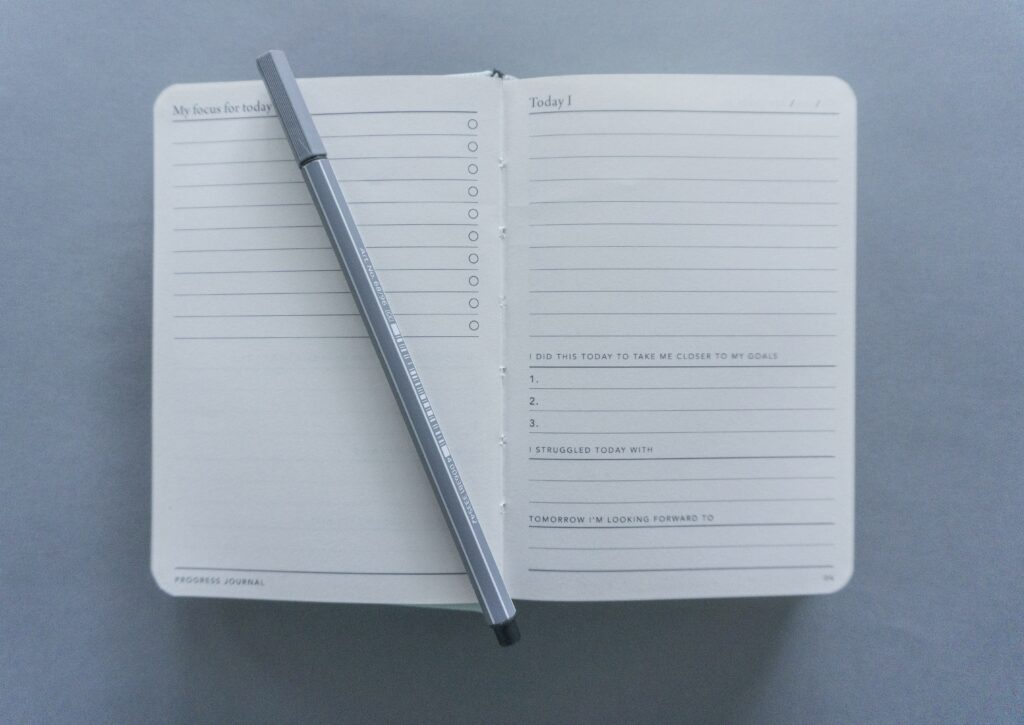Habits
Embracing Routine: The Ambitious Path to Success

Photo by Daria Nepriakhina 🇺🇦 on Unsplash
A luminary in literature, W.H. Auden once eloquently stated, “Routine, in an intelligent man, is a sign of ambition.” This aphorism, seemingly simple at its core, unfolds layers of profound meaning when dissected. It suggests that adopting routine by a person of intelligence is not a mundane act but a deliberate strategy toward achieving greater ambitions.
The Psychology of Routine and Ambition
This concept’s heart lies in the psychological interplay between routine and ambition. Routine, often perceived as the antithesis of creativity and spontaneity, is a powerful tool for the ambitious. It provides a framework that frees the mind from decision-making chaos, allowing one to focus on higher-order thinking. The mental bandwidth saved by automating trivial decisions can be redirected toward creative and strategic pursuits.
Structured Habits as a Ladder to Success
The journey from routine to success is akin to climbing a ladder, with each rung representing a structured habit. These habits, mundane as they may seem, cumulatively build a strong foundation for achieving lofty goals. For instance, a routine as simple as waking up early and dedicating the first hour to uninterrupted work can lead to significant productivity gains over time.
Integrating Effective Routines into Life
One must be mindful of the exercises they adopt to harness the power of routine. The key is identifying activities that align with one’s goals and embedding them into daily life. This integration requires discipline and commitment but pays dividends through progress and achievement.
The Role of Discipline in Routine
Discipline is the bedrock of routine. It’s the force that keeps one committed to their daily habits, even when motivation wanes. The disciplined pursuit of routine ensures consistency, vital for long-term achievement. As routines become ingrained, they become automatic behaviors, requiring less effort.
Case Studies: Successful Individuals and Their Routines
History is replete with examples of successful individuals who relied heavily on routines. From artists to scientists, the common thread is their dedication to structured habits. For instance, Albert Einstein famously had a daily walk, an exercise that cleared his mind and stimulated creative thinking.
Balancing Routine with Flexibility
While routine is crucial, balancing it with flexibility is equally important. Rigid adherence to exercise can become counterproductive, leading to burnout and stifling creativity. The intelligent incorporation of flexibility allows one to adapt to changing circumstances while maintaining the core structure of their routine.
Routine as a Reflection of Ambition
Routine, in the context of ambition, is not about restricting freedom but about channeling one’s efforts efficiently. Ambitious individuals understand that a routine is a tool to approach their goals systematically. It’s a conscious choice to prioritize long-term achievement over short-term gratification.
Technology’s Role in Enhancing Routines
Technology is crucial in optimizing routines. Technology offers numerous ways to streamline tasks and track progress, from productivity apps to AI-powered tools. Embracing these technological advancements can significantly enhance the effectiveness of one’s routine.
Overcoming the Stigma
There’s a prevalent stigma that routine equals monotony. However, this perspective overlooks the empowerment that well-crafted routines provide. Recognizing that routine is not about limiting life’s spontaneity but about creating space for focused growth is essential.
The Contrarian View:
Contrarian views argue that routine can be a limitation, potentially stifling creativity and spontaneity. At the same time, it’s a valid concern that the intelligent use of routine counterbalances this by providing structure without impeding creative freedom.
Routine and Mental Health
Routine also plays a significant role in maintaining mental health. A structured daily life provides stability and predictability, comforting in an ever-changing world. This stability is crucial for mental well-being and can enhance overall life satisfaction.
Implementing: A Step-by-Step Guide
- Define Your Goals: Clearly articulate your goals through your routine.
- Identify Key Habits: Determine the habits that directly contribute to your goals.
- Start Small: Begin with manageable changes to avoid overwhelm.
- Consistency Over Intensity: Focus on maintaining your routine consistently rather than its intensity.
- Track Progress: Use tools and methods to monitor your adherence and progress.
- Evaluate and Adjust: Regularly assess your routine and make adjustments as needed.
To sum up, W.H. Auden’s assertion that routine is a sign of ambition in an intelligent individual holds profound truth. Routine, when intelligently crafted and followed, becomes a catalyst for achieving greatness. It’s the secret weapon of the ambitious, a steady drumbeat guiding them towards their ultimate goals.
#RoutineSuccess, #AmbitionPath, #DailyHabits, #ProductivityTips, #MentalHealth, #GoalSetting, #SuccessMindset, #LifeHacks, #TechnologyTools, #CreativeRoutine
Share this:
Balancing Proactivity and Adaptability

Photo by Christophe Hautier on Unsplash
There is a constant dance between proactive management and reactive adaptability in the multifamily space. This balance is best encapsulated by Brianna Wiest’s words, “What you must reach for, and what you must allow to come.” Every senior leader, regional manager, property manager, or stakeholder can resonate with this sentiment.
When we think about “what you must reach for,” it’s the goals we set, the standards we aspire to, the habits we embrace to drive the person we want to become, and the dreams we chase. It’s the initiative to cultivate community, foster connections, and relentlessly pursue improvement in our operations and resident experience. It’s that proactive mindset where we are not just participants but drivers of change.
Conversely, “what you must allow to come” speaks to the art of patience and acceptance. Every day in multifamily communities across the country, unexpected challenges happen – maintenance issues, resident disputes, or external economic shifts. Here, the emphasis is on adaptability, the understanding that not everything can be controlled. There’s a grace in allowing certain situations to unfold, trusting in the organic development of a community, and accepting that sometimes, the best-laid plans can change.
In essence, achieving excellence in leadership hinges on this dichotomy. It’s about reaching forth with intention yet being open to the unpredictable. It’s about striving, letting be, and understanding that both are necessary.
Share this:
Habits
Whoa – almost forgot how to use WordPress; it has been so long. Got into a bad habit of not writing everyday.
Came across a quote today that got me thinking about Habits –
 “When we look at living creatures from an outward point of view, one of the first things that strike us is that they are bundles of habits.” – William James
“When we look at living creatures from an outward point of view, one of the first things that strike us is that they are bundles of habits.” – William James
As we wind down the year I think it prudent to look at the habits that lead our lives.
Are they working for you or against you?
Do you need to throw out the old and bring in some new?
Do you need to set some goals and then think about the habits that will bring those goals to life?
Do you need to stop thinking so much and just go do stuff?
I know for me – I would like to get back to writing, it’s been way to long. And, I miss it…
Your thinking about habits multifamily maniac,
M
Share this:
How do I Build Habits?
I am often asked questions that lead with the word, how. How do you do this, how do you do that, how can I be or do better in my career, life or otherwise. Or, how do you go about creating good professional habits? Which follows the lines of my favorite question, also the premise of this post; how do you get out of bed so early in the morning? My answer: I made it a habit.
Those that know me, know that I work crazy hours often times hitting the pillow right prior to the rooster’s announcement of the day to come. And, I rise at roughly 6:00am everyday without the aid of an alarm clock. It used to be 5am but the older I get the more sleep I am learning I need.
How Did I Build the Habit of Rising Early?
It all started in college. I played basketball at Texas Tech University back in the early 90’s and part of our pre-season conditioning was running at 5am – 4 days a week. Imagine trying to have a social life while being a student while training for basketball – its brutal. Granting the pre-season training was just a six-week stretch; it was still tough. And, required good habits. Rising early being one of them.
Rising early was not an easy task and getting to bed earlier was just not an option at that time in my life. So, what did I do? I put the alarm clock as far away from my bed as I possibly could. That act alone forced me to get out of bed and walk to turn it off. At that point it was absolute will power to not crawl back between the sheets. Now granted; I had massive leverage in that missing a morning run meant a serious consequence up to and including losing my full ride scholarship. But the action of getting out of bed that early over a six-week stretch, even with three days a week off, got me in the habit of rising early. And, I have never looked back.
Laying the Foundation Habits
What does rising early have to do with building good professional habits? I see three things in the life experience cited above; 1. catalyst 2. will power 3. massive leverage. It’s not one but all three working together that builds good habit.
Catalyst
Professionally [using a marketing bent], your catalyst should marry around something to the effect of; you will be the greatest social marketing master of all time. No kidding. Okay, maybe master is a stretch given the constantly changing environment. The point is that you must be willing to sacrifice massive amounts of time, effort and brain power to get up the curve and stay there. And, don’t think once you get there you can coast. It’s just as hard if not harder to maintain the pace concerning innovation, consistency, quality and quantity.
Will Power
To put it bluntly – some days it will just suck to be you. How do I get over that? I read a book some years ago that depicted a scenario where you pick the thing about your day that you just don’t want to do and go about making that the ‘knock it out of the park over the top most compelling and rich’ thing you have ever done in your life time. Try it – you’ll get the point when you get to the end of the project.
Massive Leverage
How do I create this in my life? I think about two things 1. My wife and kids depend on me to be the best I can be. 2. My good self can only be expanded upon or reduced upon by me. No one runs my game. I am responsible for the good, the bad and the ugly every day of the week. And to make sure I remember that; I read my personal creed along with my personal, professional and economic goals every single morning and with massive passion [read: creating massive leverage]. Read enough, things just seem to come together. I really can’t explain it except to tell you that it works 100% of the time.
Your rising early multifamily manic,
M

